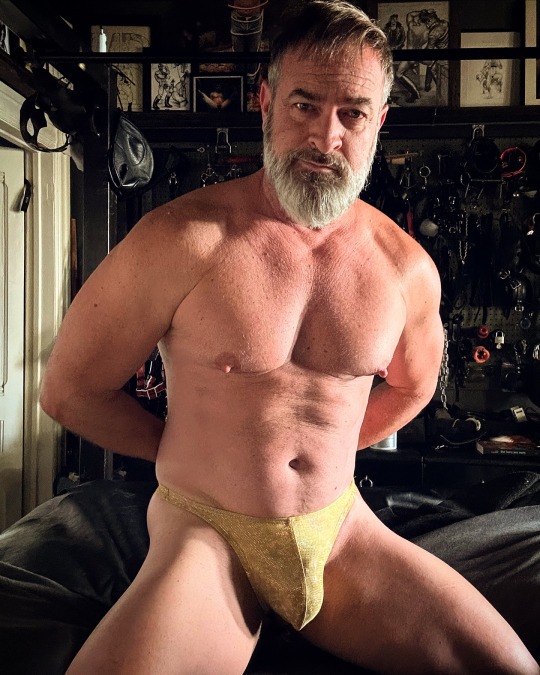#Mrs. Weston
Text
"How very differently we feel!—Not think they will do each other any good! This will certainly be the beginning of one of our quarrels about Emma, Mr. Knightley.” (Mrs. Weston, Ch 5)
“We think so very differently on this point, Mr. Knightley, that there can be no use in canvassing it. We shall only be making each other more angry." (Emma, Ch 8)
Jane Austen is brilliant. How similar are these two statements! How well the author shows how Emma has taken on some of Mrs. Weston's manner and style, which makes sense since Emma was raised by her.
Both of them basically say, "let's agree to disagree" which of course Mr. Knightley does not accept because he's certain he's right on both points (Emma and Harriet will be a damaging friendship and Emma influenced Harriet incorrectly).
Emma and Mrs. Weston, rightly or wrongly, stand up to Mr. Knightley. Yet, both women also attempt to smooth over the argument and make peace. They are both used to Knightley, this is how Mrs. Weston has taught Emma to deal with him.
#emma woodhouse#emma#mrs. weston#mr. knightley#also the implication that Mrs. Weston quarreled with Mr. Knightley frequently#As a governess#She knows how to stand up for herself#She taught Emma to defend her opinions#Which while she may go wrong sometimes#is still a good trait#No wonder Jane Austen has lasted 200 years in counting#Jane Austen#jane austen is a genius
96 notes
·
View notes
Text
10th October: A pilfering occurs
Read the post and comment on WordPress
Read: Vol. 3, ch. 19; pp. 318–319 (“In this state of suspense” to “able to fix her wedding-day”).
Context
Someone robs Mrs. Weston’s poultry-house of all of her turkeys. Consequently, Emma and Mr. Knightley are able to set the date of their wedding.
We know that this occurs after Harriet and Robert Martin's wedding in September, and before the end of October.
Readings and Interpretations
How Much Poultry Would a Poultry Pilferer Pilfer?
We last left our couple in a state of suspense as to when Mr. Woodhouse’s sensibilities (and Emma’s concern for them) would allow them to marry. Then “Mrs. Weston’s turkey coop is robbed, and the problem is resolved” (Paris, p. 93).
Many critics point out the contrived nature of this resolution. Bernard Paris writes:
The manipulated ending is in complete accord with the laws and spirit of comedy. It saves Emma from having to make a painful choice, and it reconciles Mr. Woodhouse to the marriage. It serves Jane Austen’s thematic purposes by maintaining the illusion of Emma’s maturation. By arranging the world to fit Emma’s defensive needs, she obscures the psychological realities which she has portrayed so vividly. She does not want us to see, nor can she afford to see consciously herself, the severity of Emma’s father problem and the fact that it is unresolved. (ibid.)
Paris connects Emma’s late situation to that of Frank Churchill, in that both characters had been subject to “the damaging effects of manipulation by sick, life-denying parental figures”; on this topic “Austen has, understandably, no wisdom to offer. All that she can propose is to follow the self-effacing (or the perfectionistic) route of doing one’s duty” (p. 94). Thus the only solution is contrived incident which also serves to support the novel’s moral ethos:
[...] Emma is not forced by her situation to suspend the marriage. It would have been perfectly moral for her to proceed, expressing all the while her love and concern for her father. His unhappiness would have passed. Jane Austen’s amused tone suggests that she has some awareness of the irrationality of Emma’s decision, but she seems, nevertheless, to be basically sympathetic toward her heroine’s self-sacrificial behavior. She could not have had Emma behave differently, of course. Emma behaves as she must. But it was within the power of [Austen’s] rhetoric, if she had had a clear enough vision, to suggest the destructiveness of Emma’s solution and the preferability of the Knightleys’ alternative. As we have seen, Emma is in this instance saved from the consequences of her psychological problems by authorial manipulation of the plot. Form and theme work well together here. The comic action accords with the picture of the world which accompanies the self-effacing solution. Reality is antagonistic to Emma’s wishes as long as she is proud. When she becomes humble and unselfish, fortune turns in her favor. Virtue is rewarded. (ibid.)
Thus also Margaret Kirkham:
The final precipitation of the marriage, by Mr Woodhouse’s anxieties about a local poultry thief, is plainly intended to be taken lightly. While it fits perfectly with his character, the author expects us to enjoy the joke as she finds a piece of comic business with which to facilitate the wedding without which the book cannot be ended. I think that the reader is also supposed to see by this time what the schematic structure has been, and how an unlikely, even an absurd, plot has been worked upon so that it does not violate Nature or probability. At this point, if not before, we are to stand back from the fiction and its characters—to experience the mild alienation which results from being shown the constructional nuts and bolts—and, as we see that there was never any possibility of things working out in any other way, to ask what this particular handling of a stock situation shows us about it. (p. 125)
Michael Suk-Young Chwe also notes the manipulated nature of the robbery, but speculates that it may be attributable to Emma herself:
This “accidental” manipulation comes out of nowhere, like the gypsies who allow Frank Churchill to rescue Harriet, but it is not implausible. Austen shows us that seemingly impossible situations can be overcome with just the right change of circumstances, and what seems like a disadvantage, even the entire reason for the problem in the first place, can be used to one’s advantage. A successful manipulation is always possible if you are creative enough. Maybe the thievery was just a rumor created by Emma or her confederates, as one of the poultry houses reportedly robbed belonged to Mrs. Weston, Emma’s closest friend. Maybe Austen is showing off her own strategic thinking skills: the problem is posed at the very beginning of the novel, remains unchanged throughout, and the reader is given plenty of time to think of a solution. For Austen it is easy. (p. 185)
For Karen Newman, this prosaic incident is a telling example of how, in Austen, “our conventional expectations are often met but at the same time undermined by self-consciousness and parody” (p. 704); “Austen’s comic conclusions […] reveal the gap between sentimental ideals and novelistic conventions on the one hand, and the social realities of sexist prejudice, hypocrisy, and avarice on the other” (p. 705).
The Provisions of Poverty
It is also notable that this manipulated ending turns on poverty and food. Michael Lee writes that here “a food plot involving someone in or around the community who is impoverished enough to steal poultry becomes a stepping-stone for the marriage plot, disappearing along with the final obstacle of Mr. Woodhouse’s resistance to make way for ‘the perfect happiness of the union’” (p. 374). Though ultimately “disappear[ed]” by the plot, the hint at a starving populace remains unsettling. Sheryl Craig notes that “in Jane Austen’s lifetime, the economy had never been worse”; thus the poultry incident reminds the reader “of the hunger that must be allayed in order to maintain private property” (p. 140).
In the late 18th century, the enclosure of previously common land proved disastrous to the livelihoods of the rural poor: Janet Todd notes that
The loss of rights over ‘the commonable land which belongs to the parishioners in general’ deprived commoners of those small amounts of grazing and arable produce which enabled them to sustain economic independence, leaving them with what they could earn in wages from the large landowners. The price of a loaf of bread rose 600 per cent between the 1780s and 1801, and in the same period agricultural wages rose only about 20 per cent. Already on 17 January 1795 the Hampshire Chronicle recorded the acute distress of rural workers and commended the good people of the city for having raised £287 for relief of distress caused by the bad harvest. On 16 March 1795 the same paper carried a report on the continuing distress of the poor due to the high cost of meat and wheat, and on 27 April it reported that on 12 April 500 men of the Oxfordshire militia stationed near Seaford ‘notwithstanding the endeavours of the officers had taken arms and with bayonets fixed’ seized a vessel laded with flour at Newhaven. (p. 190)
During Austen’s time, the Poor Law placed a tax on landowners with which the country’s very poorest were to be fed: “no one could be allowed to starve to death” (Craig, p. 33), though provisions were scant (see Clark and Dutton, pp. 190–1). This law did not enjoy universal popularity. Margaret Doody places the pilfering of poultry within the context of political debate (spurred by the likes of Thomas Malthus and Herbert Spenser) about whether it were not more economically sound simply to allow the poor to starve and die. The former’s “most recent pamphlets (1814; 1815) defended the ‘Corn Laws’ banning importation of grain into England. Ostensibly Christian, Malthus advocated the sad necessity of denying food to the poor. Charity extended to keep people from dying constituted a danger to the economy” (p. 359).1 While Emma “engages in no overt philosophical commentary or argument as to whether it is right or inevitable to let the poor starve and die,” Doody argues that it is “a sustained riposte” to Malthus: “people are constantly engaged in feeding each other” in Highbury, frequently “feed[ing] those who are below them in status or income” (p. 359). Mr. Woodhouse’s reaction to the turkey theft is thus an “implicit critique” of Malthus and those who follow his principles:
“Pilfering was housebreaking to Mr. Woodhouse’s fears” (Emma, III, ch. 19). The narrative ridicules Mr. Woodhouse’s definition, even though the thieves indeed broke into an enclosure. Austen here indirectly casts ridicule on the “Alton Association,” wealthy landowners offering a reward of two guineas for information regarding stealing of poultry from enclosed ground […]. The Association zealously seeks to punish hungry persons who take turnips from the fields. (ibid.)
Particularities of the Picturesque
Does the poultry incident have anything to do with an earlier, similarly contrived, occurrence between Frank and Harriet? Willam Galperin describes how theories that govern “picturesque landscape” influence the rules of “realistic narrative” and domestic comedy (p. 21). In particular, Austen’s handling of Harriet’s encounter with the “gypsies” reflects how “the picturesque innoculates itself to […] irruptions of the other […] by admission of tempered variety and managed incident”; they are narratively “contain[ed]” and so “not a threat to the world of this novel” (ibid.). The “more ‘natural’” Frank/Harriet narrative that Emma had constructed out of that incident, however, “also projects the gypsies’ instrumentality in an order—specifically a social hegemony—that requires […] that the gypsies be taken seriously” (p. 21).2 For Galperin, the poultry theft is another moment that makes the “gypsies” instrumental in a “‘natural’” narrative (this time the Emma/Knightley match):
[...] [A]t the very end of the novel, by which point Emma is herself subject to the very [marriage] plot over which she had earlier contrived to exert control, the consummation of the story, and the strengthening of social hegemony through the consolidation of the Woodhouse and Knightley estates, is effectively motivated by the reappearance of the gypsies. Although initially resistant to his daughter’s marriage, as he is to almost any change in his everyday routine, Emma’s valetudinarian father cheerfully consents to her marriage, and to the addition of George Knightley to his household, but only in the wake of a rash of poultry pilferings in his neighborhood, which he is convinced are preliminary to housebreaking.
These pilferings—which are the work of gypsies (for there are no other suspects in the novel so far as I can tell)—are no more a threat to the social fabric of Highbury than they are likely to escalate to more invasive crimes that require, as the narrator puts it, a “son-in-law’s protection” [p. 318]. Rather the thefts, however unanticipated, are a device, a contrivance really, by which a social whole, no less than an aesthetic [picturesque] whole, perpetuates and legitimizes itself. And in this sense, they are, like the variety and activity that the picturesque composes into union, anticipated surprises: a feared and therefore palpable “roughness” to which the community, no less than the realistic domestic comedy that Austen is alleged to have written (and to some extent has written here), is continually on the alert. (ibid.)
Thus the picturesque and its derivative “theories, at once aesthetic and political,” demand a “containment of the other” that is “an opposition to substantive change and ultimately to any practice that might be deemed counterhegemonic” (ibid).
Galperin does not, however, read the novel as ultimately conservative: “despite all that Emma provides the readers by way of understanding the world it represents, it does not extend or govern that understanding sufficiently to contain the oppositional practices of characters who are plainly less reconciled to society than are other characters” (p. 22). These “oppositional practices” may be grasped by readers and especially by rereaders: “Numerous incidents and elements in the novel, including the famous Box Hill episodes—what another character, Mrs. Elton enthusiastically (and tellingly) imagines will be “a sort of gipsy party” [vol. 3, ch. 6 [42]; p. 232]—yield up possibilities to which readers […] are never directly guided by the narrator, yet to which, on subsequent readings, they are likely to be quite attentive” (ibid.). Thus Austen “make[s] the experience or consumption of the text” itself a “potentially oppositional” practice (ibid.).
Galperin’s solution to the identity of the poultry thieves is not accepted by all commenters. Jillian Heydt-Stevenson writes that “[t]he final enigma—who robbed Mrs Weston’s poultry-house ‘of all her turkies’?—remains unanswered, though, like the novel’s other riddles, it goes far to enable a wedding” (p. 164).
Footnotes
On Malthusian arguments (“[t]he opprobrium toward the hungry by the new political economy”) and food in Austen see also Lee, pp. 375–9.
See also “The Stuff of Romance.”
Discussion Questions
Does this ending seem contrived to you? How does its naturalness (or lack thereof) reflect on the construction of the novel as a whole?
What do you think Austen’s views on poverty were likely to be? Can we tell from her fiction?
Who do you think is likely to have committed the poultry thefts? Are we meant to be able to figure it out?
Bibliography
Austen, Jane. Emma (Norton Critical Edition). 3rd ed. Ed. Stephen M. Parrish. New York: W. W. Norton & Company, [1815] 2000.
Chwe, Michael Suk-Young. Jane Austen, Game Theorist. Princeton: Princeton University Press (2013).
Clark, Robert, and Gerry Dutton. “Agriculture.” In Jane Austen in Context, ed. Janet Todd. Cambridge: Cambridge University Press (2005), pp. 185–193.
Craig, Sheryl. Jane Austen and the State of the Nation. Houndmills: Palgrave Macmillan (2015).
Galperin, William. “The Picturesque, the Real, and the Consumption of Jane Austen.” The Wordsworth Circle 28.1 (Winter 1997), pp. 19–27.
Heydt-Stevenson, Jillian. “Games, Riddles and Charades.” In Sabor (2015), pp. 150–65. DOI: 10.1017/CBO9781316014226.013.
Kirkham, Margaret. Jane Austen, Feminism and Fiction. London: The Althone Press (1997).
Lee, Michael Parrish. “The Nothing in the Novel: Jane Austen and the Food Plot.” Novel 45.3 (Fall 2012), pp. 368–88. DOI: 10.1215/00295132-1722998.
Newman, Karen. “Can This Marriage Be Saved: Jane Austen Makes Sense of an Ending.” ELH 50.4 (Winter 1983), pp. 693–710. DOI:10.2307/2872923.
Paris, Bernard. “Emma.” In Character and Conflict in Jane Austen’s Novels: A Psychological Approach. Detroit: Wayne State University Press (1978), pp. 64–95.
16 notes
·
View notes
Text
INIMITABLE (ADJ.) - so good or unusual as to be impossible to copy; unique.
[…] Is not this room rich in specimens of your landscapes and flowers? and has not Mrs. Weston some inimitable figure-pieces in her drawing-room at Randalls?
- Emma by Jane Austen, Vol. I, Ch. 06.
#langblr#language learning#english vocabulary#learning english#english studyblr#language#books and literature#vocabulary#emma#jane austen#mr. elton#emma woodhouse#mrs. weston#miss taylor#cozycore#classical literature
1 note
·
View note
Text


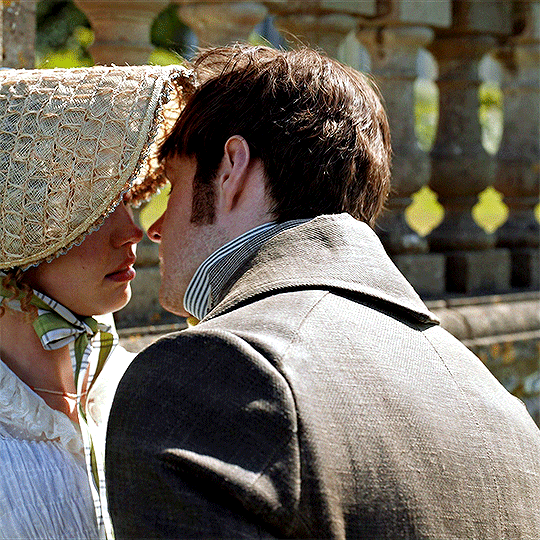
EMMA. (2020) dir. Autumn de Wilde

#emma.#perioddramaedit#romanceedit#emmaedit#austenedit#filmedit#userbennet#tuserbea#tusereliza#userpavlova#userbeccaa#emma 2020#emma x knightley#emma woodhouse#george knightley#miss taylor#mr. weston#harriet smith#robert martin#anya taylor joy#johnny flynn#*film#*
748 notes
·
View notes
Text
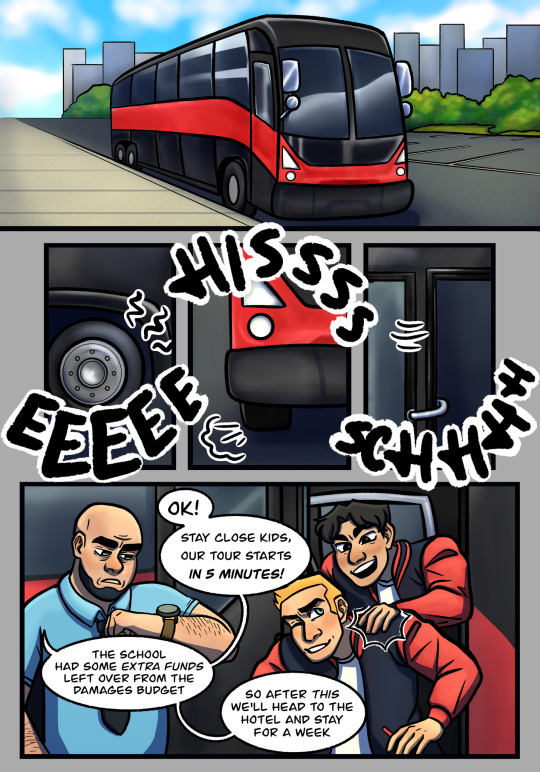
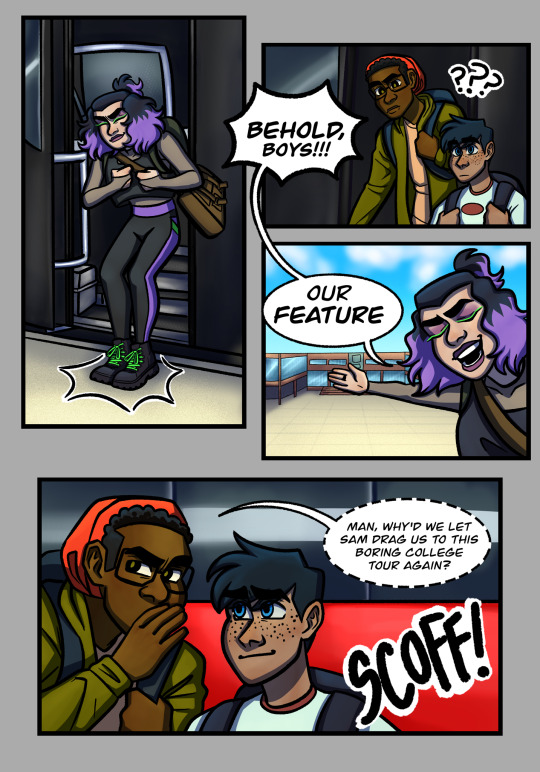
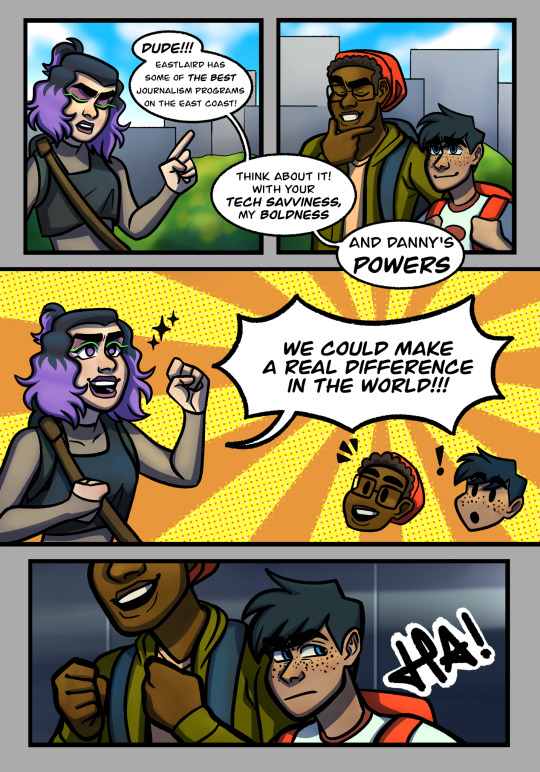


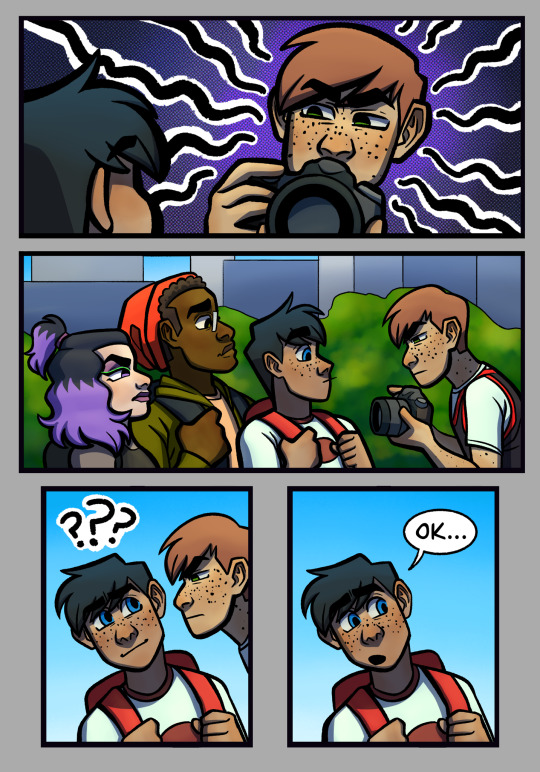
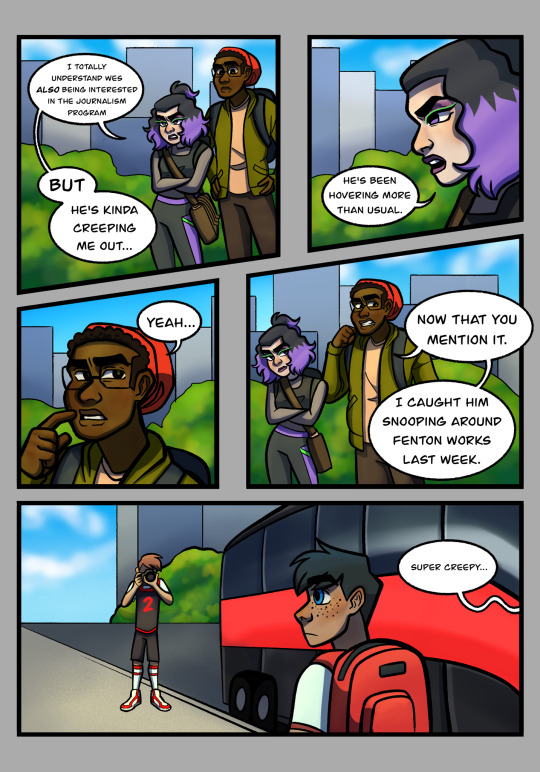

First | Previous | Next (TBD)
Master List
Discord
Hurray, it’s finally done and it's super fucking ugly! /lh
I have no idea why it came out this bad but I swear that next updates won't be this ugly ever again LOL
I'll probably get around to redrawing it later, I can help but feel guilty about subjecting you guys to this mess 💀
#dp x rottmnt#danny phantom#rottmnt#danny phantom au#rottmnt au#danny phantom crossover#danny phantom fan comic#rottmnt fan comic#rottmnt crossover#fan comic#danny fenton#wes weston#sam manson#tucker foley#paulina sanchez#dash baxter#mr lancer#crossover au#crossover comic#my art#art#artists on tumblr#digital art#artwork#charabart#my artwork#fan art
632 notes
·
View notes
Text
The Amity Parkers
Inspired by This Post, which is long, read the many reblogs and tags and comments, it’s fun!
Tim was Ninety Percent Sure that he was going absolutely insane, granted it was a long time coming. Danny Fenton, his Chemistry teacher and Dash Baxter, his Phys Ed teacher? That was two people from the same practically non-existent town in Illinois, but add onto that the fact that even MORE people kept showing up in Gotham from sleepy little Amity Park and proceeded to either A:Thrive or B:Thrive but with the Energy of a Kryptonian having nonstop contact highs.
After his two teachers, or more accuratly before, there had been Jazz Fenton, a new Psychiatrist working in Gotham and making rather noticeable strides in things. Then arrived her brother and Baxter, who had applied roughly at the same time in the aftermath of a Rogue attack on the cities water treatment plant, and the floodgates seemed to less open more fly off the hinges as though breaching charges had been used.
Now there were MORE people here, there was Tucker Foley, working at Wayne Enterprises as a coder and a damn terrifying one to boot, Sam Manson, an activist who ended up throwing Tim during one of his Red Robin patrols where he’d come across her “Protest Site” which had been a small park in The Narrows. Wes Weston, a cop, had been giving his coworkers and his Chem teacher NOTHING but grief, insisting that Fenton was doing “Something” wrong but never quite being able to get things to stick, upon further digging this had been a long running one sided rivalry. There was also a SECOND Psychiatrist, Paulina Sanchez, at Gotham Academy who was also from Amity Park, and her files were airtight, as Damian’s most recent hacking attempt and Tim’s own follow up had failed to breach her firewalls.
So, here Tim was, staring at Danielle “Dani/Ellie” Masters, Dr. Fenton’s CLONE and the Academies newest but also most feral teacher as she boxed the Joker hard enough for an audible crack to be heard from their classroom from where she was fighting the demented clown on the field. Baxter was still running his class as normal, though a bit further away, and Dr. Fenton was still teaching their class, while Tim was trying to get Extra Credit and vengeance on the Doctor through today’s extra credit task, making a tracker that could track Doctor Fenton for Twenty Four Hours.
Why was he seeking vengeance you ask? Well given the fact that Jason brought Doctor Fenton to Family Dinner last week [with Alfred’s blessing] and had come in with the most gremlin-esque energy he’d seen from a Non-Rogue. Now don’t get Tim wrong, he likes Doctor Fenton, he may be demented as all get out but he was regularly making counters to drugs and toxins that seemed to just inhabit Gotham. BUT! Doctor Fenton and Jason had been so sickeningly cutes-y with each other at Dinner, like a couple of Birds of Paradise trying to one up each other.
Then of course was the “Story Time” where the two had teamed up to tell embarrassing stories, though Danny held back, a touch. It didn’t absolve him, especially with how he egged on Jason, which very much didn’t help the whole “I know you’re the Bats” situation. AND THEN! There was the fact that a majority of the Amity Parkers KNEW that they were the Bats, It was as though they had gone through this whole song and dance before, which given prior statements of Doctor Fenton having “Hung up the Cape” seemed to imply he used to be a hero in Amity Park, where your average joe could one on one a rank and file leaguer or at least give them a rough time.
The fact that a semester of training from Baxter and Fenton alone had made Tim’s year group capable of facing off with the JL was a testament to that.
Speaking of which, some Junior Leaguers were coming to Gotham, if only for a place where they were not as “Strange”. Some of those moves may have been encouraged with the recent custody battle between Luthor against Vlad and Danielle Masters regarding Connor, who was a Copyrighted clone as it turns out, which had resulted in Connor being made a ward of Danielle Masters, who had chewed Superman out HARD along with her Original, Doctor Danny Fenton himself.
Suffice to say, Clark did NOT get majority of Custody, and only got every third weekend, which was terrifying in Tim’s opinion that this small town mayor who was as wealthy as Luthor, had turned up, legally thrashed Luthor, and then given custody over to his daughter, thrashed SUPERMAN with KRYPTONIAN LAWS, and then gone back to Amity Park Illinois to resume his Mayor-ship there. The fact the town was essentially a self governing and self sufficient region meant that the League was now VERY AWARE of it, and the fact that the League of Assassins had tried and FAILED multiple times to infiltrate the town, with more people going rogue than staying loyal, with only one out of nearly two hundred assassins returning to Nanda Parabat, critically wounded and very much insane.
In Tim’s opinion? Amity Park raised people similar too but far more prepared than Gothamites, for while Gothamites may have the Fight in their bones, Amity Parkers seem ready to back it up with experience, training, and life experience.
But then again, Mr. Lancer had been an immigrant to Amity Park, and he was the blueprint of sorts for all of his students who had gone into teaching, much the same for how Batman was the Blueprint for all the other Bats.
____________________________________________
Tagging some Folks included in the Masterpost
@plotwholls @welcometosasakiworld @bonebrokebuddy @transsunmoonwizzard @omnicrafts @vala-dreams @fox-sama97 @tired-mom @kyrianclawraith @americano-psycho @mikami1992 @thecatchat @stealingyourbones @mutable-manifestation @britcision @dxrksong @kawaiikenna @mrowsters @the-gay-florist @thatgaydemigodnerd @0satellite0 @afanofmanyships @pencil-for-a-dog @any-mouse
#dcxdp#dpxdc#dp x dc#dc x dp#liminal amity park#danny fenton#dash baxter#wes weston#paulina sanchez#danielle fenton#jazz fenton#tim drake#mr. lancer#vlad masters#lex luthor#gotham
1K notes
·
View notes
Text
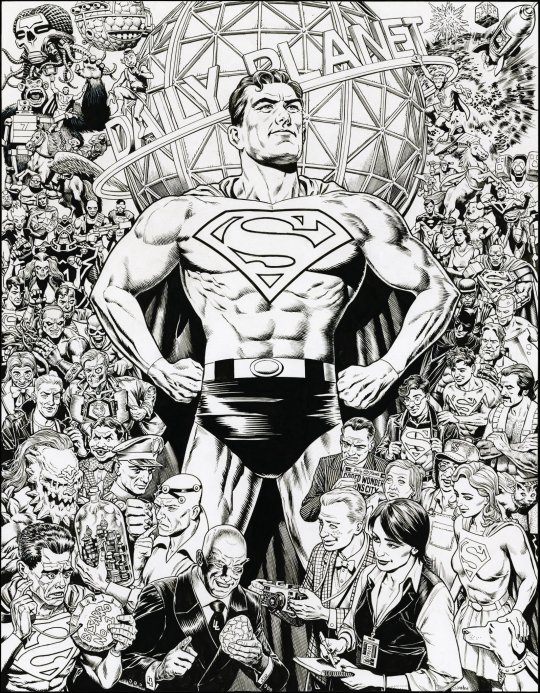
Superman
Art by Chris Weston
#Comics#DC Comics#Superman#Chris Weston#Superman Family#Lois Lane#Jimmy Olsen#Perry White#Daily Planet#Rogues#Lex Luthor#Bizarro#Brainiac#Doomsday#Supergirl#Superboy#General Zod#Terra-Man#Ma And Pa Kent#Steel#Silver Banshee#Toyman#Prankster#Metallo#Composite Superman#Atomic Skull#Mr Mxyzptlk#Titano#Darkseid#DC
33 notes
·
View notes
Text
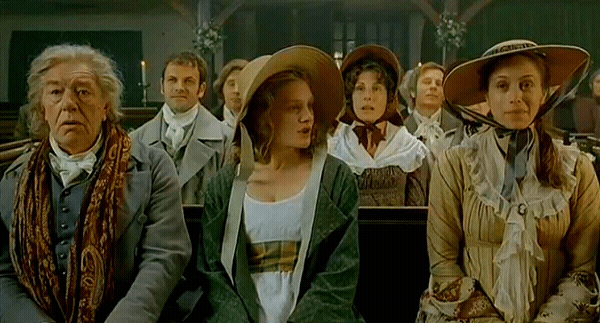
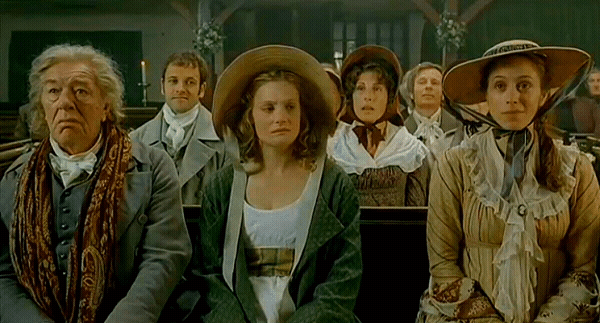


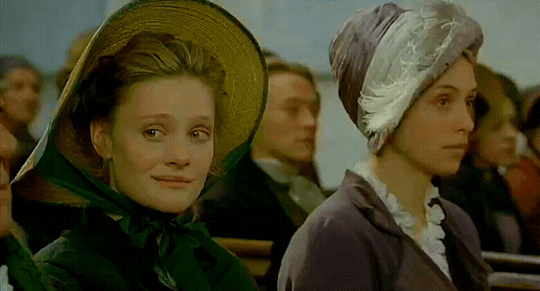
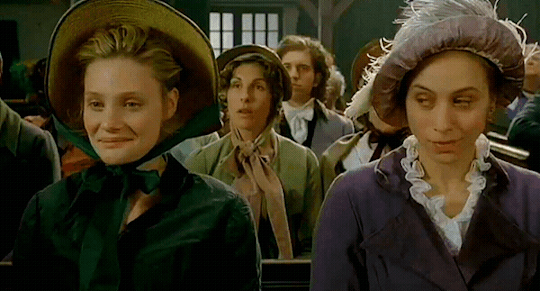
EMMA (2009)
dir. jim o'hanlon
#emma 2009#jane austen#costume drama#period drama#perioddramaedit#perioddramagif#emma woodhouse#mr woodhouse#mrs weston#romola garai#michael gambon#jodhi may#my gifs#mine
32 notes
·
View notes
Text
DPxDC
The Adventures of Dash Baxter, the Kryptonian - Part 2
(I’m working on the name I promise- I just need ideas lol)
<- Previous (Part 1 + original prompt)
Uh- please read part one for the beginning and some context I guess, it’s not too long in my opinion. ;)
Summary:
The entirety of Casper High’s Sophomores are on a field trip to Metropolis, how fun! Some self discovery happens, Wes gets arrested, Dash has a mental breakdown over finding out he’s not human, Kwan has feelings, Danny is here for it, and Mikey is kinda just there for the plot. Not exactly in that order.
——————————
The feeling of cloud-like pillows and thick comforters under his chest and face was heaven. Dash's only response to being nudged was a groan of annoyance.
Thank the Ancients the walls appeared to be soundproof.
"Dash, get up please, you need to change... and shower preferably..." Wes muttered the last bit under his breath but Dash heard it anyways.
He decided to comply, perhaps the shower would be just what he needed.
Rolling off the bed and scowling up at Wes and Mikey from the floor, Dash huffed out a sigh before snapping his fingers and pointing towards his bag full of clothes. Mikey frowned before walking over to it, picking it up with both hands by the straps, and threw it at Dash's head.
He barely managed to move in time, scrambling up off the floor and watching the heavy thing crash where his perfectly sculpted face previously was.
Wes just looked at him, tsking and turned around with his amusement only somewhat hidden.
He'd pay for that later. Dash would shove him into a cabinet, drawer, or something. He grabbed the bag anyways.
Kwan exited the bathroom in a large dark grey Dumpty Humpty shirt and very fluffy-looking pajama pants, the pants had a pattern of sleeping bulldogs with different colored heart-shaped sunglasses on. His hair was only a little damp, slightly covering his emerald colored eyes.
Dash shook his head to clear it after realizing he'd been staring for a moment too long. He strode past his best friend, expecting to catch the scent of semi-expensive hotel soap that was always in those annoyingly tiny bottles, but instead it was Kwan's regular shampoo and conditioner. Guess he wasn't the only one who brought his own for the three week trip.
Stepping into the bathroom, he noticed the mirror had bits of condensation around the edges, the steam was swirling around the bathroom fan and seeping out into the living room area.
He quickly closed the door and placed the bag on the floor, blocking access to the cabinet under the sink. A new fancy white towel was placed on the toilet seat along with Kwan's shampoo and conditioner.
The corners of his mouth quirked up as he reached out and his knuckles brushed the bottles, his friend probably left them on purpose in case he forgot his own. Dash didn't forget, but Kwan's thoughtfulness was appreciated and made his chest feel all warm and fuzzy with appreciation. So what if the field trip went from pain in the ass to bearable in three seconds, Kwan was the nicest jock out of them all and he hated being described as a ‘jock’. The guy always felt bad about relentlessly bullying Fenton a year ago and he could never hurt a fly.
With a hum, Dash turned on the shower and made sure the water wasn't burning to the touch.
It didn't take long to properly shower, the water had felt nice as it washed away fifteen plus hours on a bus, on a bus with all the sophomores in Casper High.
Dash realized after a few minutes of drying his hair to make sure it didn't make his pillow damp, that the noise of the city was muted, almost completely gone even. He could hardly hear the whispering of Wes going conspiracy theorist on Mikey and Kwan.
In fact, Dash could only hear their heartbeats if he listened closely, but even that was dulled.
Huh.
Dash prayed to the Ancients this was a one-time thing. He might have a breakdown if it wasn't.
He put the used towel in the hamper and turned to the sink to brush his hair out quickly. After putting the comb back in his bag he fished out a toothbrush and toothpaste along with floss and mouthwash.
Dash ran his fingers through his hair one more time to make sure it was as dry as he could make it, before finishing his nightly routine and putting his stuff away. He grabbed Kwan's soaps along with his bag and grabbed the doorknob, however, the metal creaked and his hand formed a slight finger-shaped dent in the shiny gold-colored material.
Dash grimaced, he didn't need to give Wes something else to hyperfixate on. He witnessed what happened the last time, and he felt bad for the poor freshman who was indeed a furry, but certainly not a werewolf.
He turned the knob with delicacy, making sure not to apply too much pressure. He walked out, barely suppressing a yawn. Kwan look up at him from the lower twin bunk bed near the windows, the exhaustion causing his eyelids to droop.
Wes was setting up a cork board riddled with pins, sticky notes, and photos. Where he managed to keep (read: hide) the thing on the bus ride stumped Dash.
Mikey looking at Wes as if he’d grown a second head, slack jawed and glancing back and forth between the three other teens in the room.
Weston shifted slightly, lifting his head a little higher and sneering when he took notice of the blonde.
Dash scoffed lightly and turned to walk towards his best friend. He tossed the bottles to him with a nod and a curve to his lips.
“You taking the bottom?” Dash couldn’t keep the yawn down this time, lifting his arms over his head to stretch while he walked away to turn the lights off, save the lamp on Wes’s nightstand.
“Yup.” Kwan said, popping the ‘p’.
“You wanna switch halfway through or nah?” The blonde questioned, flicking the switch by the entrance and checking the lock on the door.
Kwan hummed, “I’m alright, I don’t like sleeping high off the ground.” He rubbed the back of his neck sheepishly, a trait Dash swore up and down he learned from the youngest Fenton.
He nodded, and as he walked by Wes he smacked him on the back. Wes hissed in surprise, a couple of pins falling on the floor as they spilled from the box.
“Go to sleep Weston.” Dash grunted, sleep pulling at his achy limbs and sore joints.
“Yeah yeah I will you blonde bastard.” Wes hissed under his breath.
“Language.” Dash didn’t turn back as he spoke.
“English.” Wes snapped - causing Dash to throw a nasty look over his shoulder -, his lip curling before his head tilted a tad and his eyes took on an odd glint.
He didn’t have time to process it as he turned around and hoisted himself up onto the top bunk while murmuring a quiet ‘good night’ to Kwan.
Dash lowered himself onto the bed, placing his head on the pillow with a sigh of contentment.
It wasn’t long until the last light in the room turned off, Mikey’s soft snoring filling the air in minutes. Dash shifted on top of the covers, positioning himself to look out the window. The hotel was placed on the outskirts of the city, most likely to avoid the bullshit that Superman had to protect Metropolis from.
He let his thoughts drift, his mind jumping from one topic to the next. Dash fiddled with the silk - he thinks it’s silk - sheets as he stared out through the thick glass and found himself transfixed with the city itself, sure Amity Park was pretty, but the Fenton’s monstrous compendium of anti-ghost weaponry tended to light up the sky with green every time their local hero set it off. And don’t get anyone started on the amount OSHA violations the so-called OP’s center ha-
A creak of springs from one of the mattresses snapped him out of his little adventure. There was a pitter-patter of feet on the marble tile floor before the semi-silent steps on the carpet. It wasn’t Kwan, he could hear the whistle of air rushing between his teeth when he exhaled. It wasn’t Mikey, he was still snoring.
Dash concluded it had to be Wes, frowning, he turned over only to spot the conspiracy theorist with his camera. Wes was standing on the ladder, the lens barely two feet from his face as he heard the tale tell click of the shutter.
“Go away Wes.” He whispered harshly.
The redhead was suspiciously quiet, but he lowered the camera regardless. Dash scowled when he made no move to get down.
“I’d recommend you climb down yourself before I push you off.” Dash growled with little heat behind it.
Wes opened his mouth, closed it, and repeated the action a few more times before managing to utter a few words.
“I… don’t like this.” Wes’s gaze was fixed on the window and the space beyond.
“I don’t think any of us do. I’d rather be stuck with Fenton and the tech nerd than you.” Dash whispered, sitting up and pulling his knees to his chest, resting his chin on his kneecaps.
“Well yeah… but…” Wes started. “Ugh, never mind.”
The teen hopped off the ladder, glancing one more time at Dash, before looking over his camera to make sure it wasn’t damaged in any way. Dash flopped back down, taking the time to pull the sheets over his body this time. He heard Wes place the camera on the nightstand, step into bed, and eventually pass out.
It didn’t take long after that for Dash to fall into a dreamless slumber.
…
…
knock knock knock
…
KnoCK KNocK
.
KNOCK. KNOCK. KNOCK.
The voice was muffled but unmistakably Ms. Tetslaff.
“Get yer butts outta bed!! We’re leaving for the Art Museum tour in forty five!”
Dash could hear the shuffling of students mingling in the hallway.
Kwan stretched, joints popping as he hopped out of bed with more vigor than someone should have at seven in the morning.
Oh boy. This should be fun. For once, he agreed with Wes’s bemoaning.
———————————
Wooosshhh. Done! I’m happy with how this is going so far, next up: Art Museum but then ✨crime✨
Hopefully I’ll be able to make time to write this week, and Happy Valentines Day! And to all, a good night!
Wait that’s not how the saying goes…
#dp x dc#dc x dp#dpxdc#dcxdp#dc x dp fanfiction#fic#fic update#danny phantom#dp#dc#dash baxter#kwan#wes weston#mikey#paulina sanchez#star#danny fenton#tucker foley#sam manson#mr lancer#mr. lancer#ms tetslaff#metropolis#lex luthor is acting sus#Danny will get his time to shine eventually!!#i promise#please give me name ideas for this fic#I kinda wanna name it after song lyrics?#but I’m not sure#i’ll take anything
204 notes
·
View notes
Text
This might be my favourite funny part in all of Jane Austen’s novels, and it’s just even better considering how we have parties today:
Mrs. Weston proposed having no regular supper; merely sandwiches, &c., set out in the little room; but that was scouted as a wretched suggestion. A private dance, without sitting down to supper, was pronounced an infamous fraud upon the rights of men and women; and Mrs. Weston must not speak of it again.
-Emma, V2 Ch11
You mean... a buffet? A buffet is an infamous fraud upon the rights of men and women? How dare Mrs. Weston even think of such a thing! It sounds like my human rights have been violated for years and years. This is basically every Super Bowl party I’ve been to in my adult life!
Summon the tribunal!
#jane austen#funny moments#infamous fraud#emma#mrs. weston#I'm Canadian btw if you don't do Super Bowl with potluck buffets#but like most adult parties we don't do a sit down meal#we must sit down to supper
67 notes
·
View notes
Text
27th July – 30th July
Read the post and comment on WordPress
Read: Vol. 3, ch. 17; pp. 307–308 (“and he was soon used” to “‘Jane has any suspicion’”).
Context
Emma tells Mrs. Weston of her engagement. Emma, Mr. Knightley, Isabella, and Mrs. Weston work to convince Mr. Woodhouse of the desirability of her marriage. The news of the engagement spreads, as secrets always do.
The “peculiarly” in Mrs. Weston’s “peculiarly eligible” means “particularly,” “singularly.”
Readings and Interpretations
All Open, All Equal
LeRoy Smith argues that Emma explores a central theme of “openness and equality”: “In Austen’s view individual happiness requires the union of two selves as well as the use of one’s full human potential. Such a union, based on ‘truth and sincerity’ in personal relationships [vol. 3, ch. 15 [51]; p. 293], depends upon equality between the sexes, mutual respect and candour” (p. 145). “Knightley endorses the ideal of openness and equality well before he can be a partner in such a relationship” (ibid.); Emma, for her part, “seeks openness and equality with equal vigour and with greater immediate cause: as a sign of her worth in her own and in others’ eyes. As much as any thing, Emma wants to be able to speak freely and to be thought interesting. She desires ‘equal footing and perfect unreserve’” (p. 146).
However, before this union can occur, both Knightley and Emma must overcome the ingrained patriarchal attitudes which prompt Emma to emulate the privileged male and which lead Knightley […] to assume a superiority because of his sex. Emma must mature, which means that she must free herself from fear of a woman’s life; but, equally important, Knightley must accept her maturing, which means that he must learn to treat her not as a child or stereotypically but as an equal. Both must learn to accept the world with its faults: Emma, by discovering the self-defeating effects of her elaborate defence, and Knightley, by learning to tolerate fallibility in others through a discovery of his own failings. (ibid.)
When Emma at last realizes her love for Mr. Knightley, though, that “last discovery marks the climax of the theme of openness and equality”: “After achieving their own concord, Knightley exclaims to Emma that they have ‘every right that equal worth can give, to be happy together’ [vol. 3, ch. 17 [53]; p. 306]. Mrs Weston places the final seal of approval on the match: ‘It was all right, all open, all equal. No sacrifice on any side worth the name. It was a union of the highest promise of felicity in itself, and without one real, rational difficulty to oppose or delay it’” (p. 145).
Universally A Surprise?
Within an hour of hearing the news, Mr. Weston “was not far from believing that he had always foreseen it” (p. 308). For Margaret Kirkham, “[t]he rightness of Emma and Mr Knightley as marriage partners is established both morally and psychologically, but it is also required by the demands of the plot […]. Mr Knightley [is] made acceptable […] because he already occupies a place as a supernumerary son-in-law long before he and Emma ever think of marrying” (p. 124). Casey Finch and Peter Bowen write of free indirect discourse as Jane Austen employs it in Emma as a “new and formidable technology of truth” which enacts “[a]lmost total authority—a near epistemological hegemony” (p. 15). Here, it naturalizes the political forces that determine the desirability of Emma and Knightley’s marriage and make it seem as though it had always been prospected:
the match between herself and Mr. Knightley is imperative; as Mrs. Weston ruminates (in the free indirect style), ‘It was in every respect so proper, suitable, and unexceptionable a connexion, and in one respect, one point of the highest importance, so peculiarly eligible, so singularly fortunate, that now it seemed as if Emma could not safely have attached herself to any other creature.’ […] In this passage, […] free indirect style functions specifically to disguise the ideological imperatives of the novel as the autonomous ideation of one of its characters. The authority for approving good marriages […] is naturalized and made to seem not as though it impelled itself upon a subject it created for that purpose but as though it issued from a subject wholly free and autonomous. And though Mrs. Elton, for instance, may begrudge the match of Emma and Mr. Knightley, her thoughts, as they are reproduced in the free indirect style, turn out to be limited and inconsequential. The free indirect style may well recognize certain resistances to the novel’s political impulsions, but it will always do so in order to render them palpably illegitimate; for while this new narrative technology seems to reveal a democracy of independent and differing opinions, individuals’ thoughts are finally judged against the overriding social imperatives. (p. 14)
Other critics also note the after-the-fact determinism that seems to be at play here. Deidre Lynch writes about “Austen’s own investigations of habit—her interest in the stratagems for salvaging continuity and connectedness that her characters devise to feel at home even while life and history go on” (p. 1105). This includes Highbury’s inhabitants’ “inveterate gift for taking the unexpected in stride”:
Not yet even a nine days’ wonder, the news of Emma’s engagement quickly enters the category of what everybody had “always foreseen,” for Highbury admits few impediments when it comes to its adherence to routine. “Harriet Smith’s intimacy at Hartfield was soon a settled thing,” the narrator informs us, manipulating her verb tense to make the unsettling vanish from view [vol. 1, ch. 4; p. 15]. With comparable finesse Highbury arranges in conversation to repatriate those unsettled outsiders Frank and Jane: townsfolk treat them as “old acquaintance,” whose prospects are “a common concern.” (p. 1105)
For Nicholas Royle, Emma is a “novel which, because of what it conceals and ultimately reveals about the relations between characters, in a sense only becomes legible once a ‘first’ reading has been completed” (p. 47). The point “is not merely that the time of this text […] is split, doubled, destines itself always to the time of another reading, defers itself and ultimately enforces a reading that makes it always differ from itself,” but also that “Emma situates subjectivity itself in this way”:
Everything is staged within the sense of a certain après-coup of anticipation, and in the constitutive necessity of a certain foreseeing of the past. For example, there is the account of Emma’s response to seeing Harriet and Frank Churchill together. Their being together is just what we have been led to believe Emma herself has foreseen. It is in the aftermath of the encounter with the ‘party of gypsies’: ‘[…] How much more must an imaginist, like herself, be on fire with speculation and foresight!—especially with such a ground-work of anticipation as her mind had already made’ [vol. 3, ch. 3 [39]; p. 218]. Emma’s delusion here nevertheless bears a structure corresponding to that of the experience of Mr Weston when, at the ‘end’ of the novel, he is informed of Emma’s and Knightley’s marriage: ‘the wonder of it was very soon nothing; and by the end of an hour he was not far from believing that he had always foreseen it’ [p. 308]. Here, at the end of the novel, ‘there was nothing to be shifted off in a wild speculation on the future’; but when speculation and the narrative itself ends, it begins. (ibid.)
Discussion Questions
Why does Mr. Weston believe that he has “always foreseen” Emma and Mr. Knightley’s engagement? Is this a personal or a political comment?
Bibliography
Austen, Jane. Emma (Norton Critical Edition). 3rd ed. Ed. Stephen M. Parrish. New York: W. W. Norton & Company, [1815] 2000.
Finch, Casey & Peter Bowen. “‘The Tittle-Tattle of Highbury’: Gossip and the Free Indirect Style in Emma.” Representations 31 (1990), pp. 1–18. DOI: 10.2307/2928397.
Kirkham, Margaret. Jane Austen, Feminism and Fiction. London: The Althone Press (1997).
Lynch, Deidre Shauna. “Homes and Haunts: Austen’s and Mitford’s English Idylls.” PMLA 115.5 (October 2000), pp. 1103–8.
Royle, Nicholas. “Telepathy: From Jane Austen and Henry James.” Oxford Literary Review 10.1/2 (1988), pp. 43–60.
Smith, LeRoy W. Jane Austen and the Drama of Woman. London: Macmillan (1983).
#Emma#Jane Austen#Emma Woodhouse#Mr. Woodhouse#Mr. Knightley#Mrs. Weston#Isabella Knightley#Mr. Weston#e
19 notes
·
View notes
Text
VEXATION (noun) - a cause of annoyance, frustration, or worry.
"I hope not that. It is not likely. No, Mr. Knightley, do not foretell vexation from that quarter."
- Emma by Jane Austen, Vol. I, Ch. 05.
#langblr#language learning#english vocabulary#learning english#english studyblr#language#books and literature#vocabulary#emma#jane austen#mrs. weston#miss taylor#mr. knightley
1 note
·
View note
Text
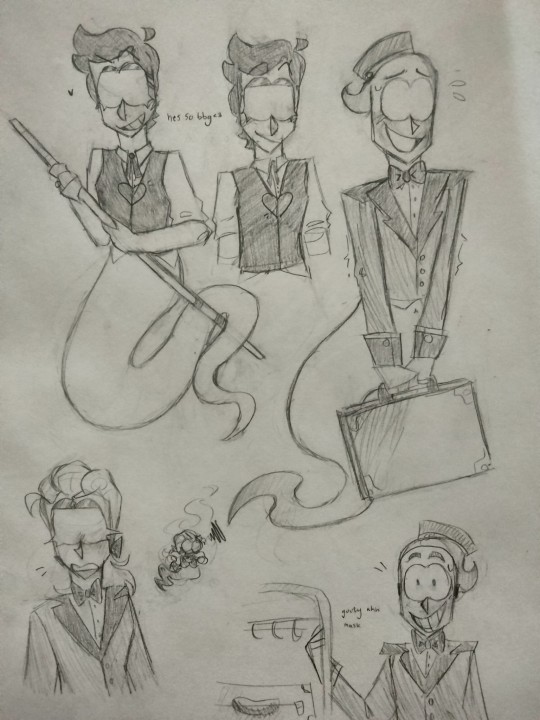
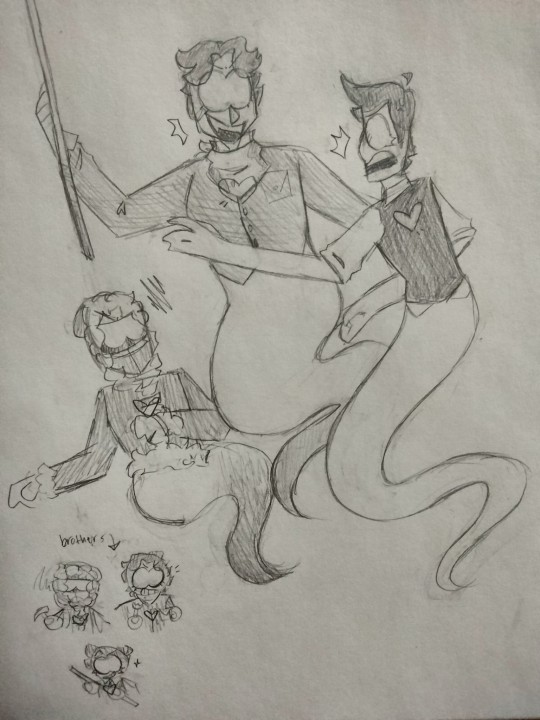
been thinking of ghosts lately
#theyr just#so silly#and holy shit my art has changed so much since ive last shared it here#uhh whoops#my art#luigis mansion#luigis mansion 3#slim bankshot#mr luggs#sir weston#ft a headcanon for tjose three i stole from a fic#steward lm3#amadeus wolfgeist
26 notes
·
View notes
Photo
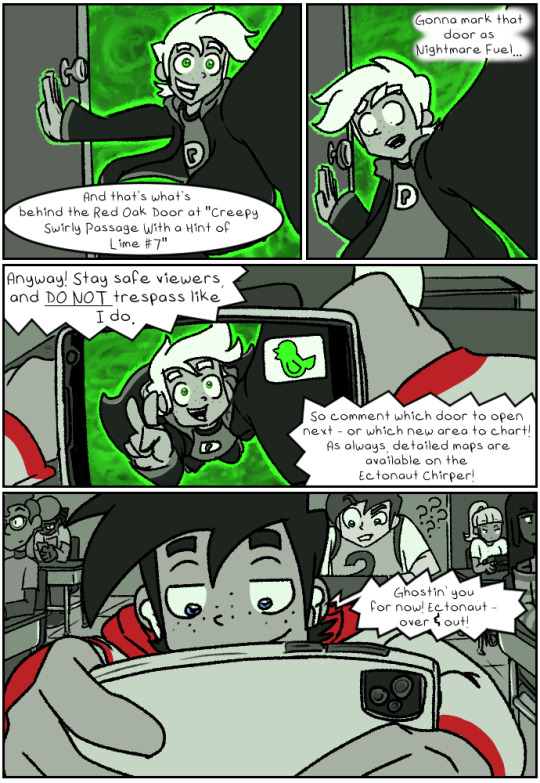



Ectonaut AU part 1!
Read Chronologically || NEXT
MASTERPOST
#danny phantom#danny fenton#Ectonaut AU#danny phantom au#danny phantom comic#sam manson#tucker foley#dash baxter#mr lancer#wes weston#wesley weston#my art#sky draws#Ectonaut AU Comic
840 notes
·
View notes
Photo

Ectoberhaunt comic 2022
The hunt for the king.
Tuesday: Staff and Box
Mr. Lancer is part of the school staff and Sam couldn’t convince the box ghost to steal the boxes with frogs for disection so she asked the next ghost she knows.
#Ectoberhaunt22#EH Order#EH Chaos#EH Comic#Day 4#Staff#Box#Danny Phantom#danny fenton#Mr Lancer#Wes weston#Tucker#Sam#Tucker foley#Sam Manson#art#fanart
305 notes
·
View notes
